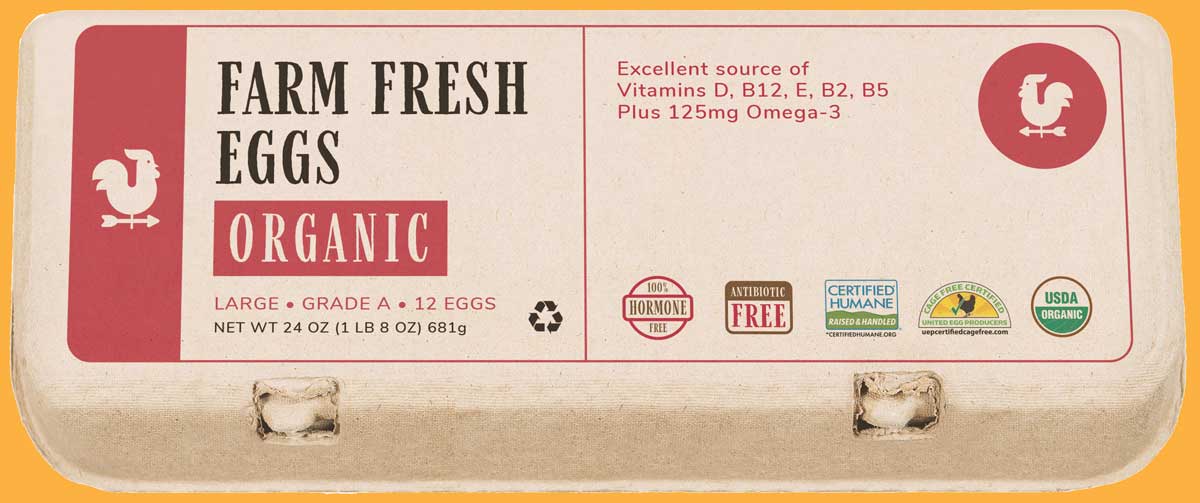Sorry, no results found. (Current search radius: {{ searchRadius }} mi)
Please input your ZIP code above.
{{ store[2] }}, {{ store[3] }}, {{ store[4] }} {{ store[5] }}
Eggs sold: {{ store[6] }}
Get Directions >
It’s a simple carrier with 12 egg-shaped slots. Yet over the years in the hands of marketing experts, the egg carton has gotten confusing. That’s why we’re here to help you learn what you need to know and what you can ignore.

Good retailers care about where their eggs are sourced. They pay special attention to hen treatment, diet and living conditions.